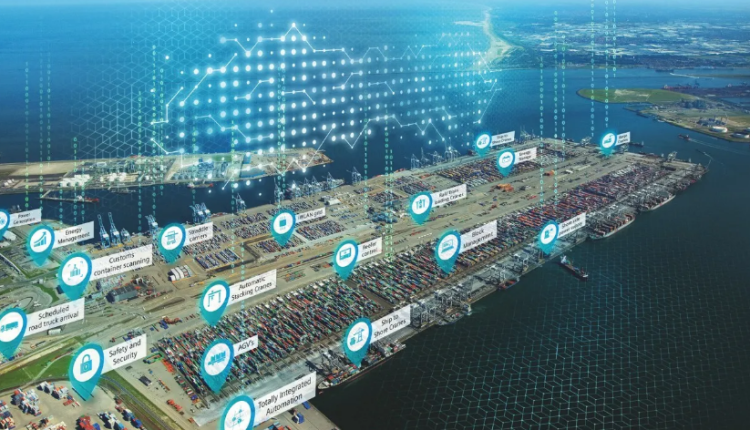Sea News: Third-generation ports or modern ports are of great importance and can effectively contribute to the development of maritime transportation and international trade between countries. In Iran, attention to the development of third-generation ports has increased in recent years, but we have not yet moved towards establishing or upgrading these ports.
According to analyses conducted, the global maritime transportation market is moving towards growth and development, and rival countries in maritime transportation are benefiting from modern technologies. Therefore, Iran needs to invest in third-generation ports to maintain and increase competitiveness in this field.
These ports typically have more advanced equipment and provide more optimized loading and unloading facilities.
Here are some important points about modern ports that need to be addressed:
1. **Deeper Berths and Advanced Docks**: Third-generation ports have deeper berths and docks with more advanced equipment, allowing larger ships to dock. These facilities increase efficiency and reduce transportation costs.
2. **Modern Loading and Unloading Facilities**: Third-generation ports have loading and unloading facilities with advanced technologies such as automated loading cranes and cargo handling systems, making transportation operations faster and more efficient.
3. **Development of Ports for Export and Import**: These ports contribute to the development of international trade and play a significant role in the economic growth of the country.
4. **Development of Ports with an International Approach**: These ports adhere to international standards and regulations and serve as hubs for international transportation.
Digital Ports:
Smart Systems and Automation: Digital ports use smart systems and automation that automatically manage various processes such as loading, unloading, and ship traffic control, improving efficiency and increasing security and accuracy of operations.
Data-based Communications: Digital ports use data-based communications that enable fast and accurate transfer of information between different parts of the port, ships, and various centers such as customs and coast guard.
Maritime Traffic Databases: Digital ports use maritime traffic databases that provide harbor managers with accurate information about ship traffic, loading and unloading, and other port operations. This information helps managers make better decisions about port management.
Internet of Things (IoT) Platforms: Digital ports use Internet of Things platforms that allow them to remotely manage and control various port devices and equipment, such as lighting systems, surveillance cameras, and security equipment.
The role of digital ports in the development of maritime transportation:
Increased Efficiency and Cost Reduction: Digital ports, by improving port performance and efficiency, help reduce costs and waiting times for ships, and reduce costs resulting from delays.
Increased Security: Using smart systems and data-based communications, digital ports provide better security facilities that help maintain port security.
More Facilities for Users: Digital ports, by providing smart systems and online services, provide more facilities for ships, passengers, and port customers.
Governments and officials need to take the necessary steps to establish smart and modern ports across the country to turn Iran into a key player in maritime transportation in the region. These developments not only contribute to the economic growth of the country but also help increase maritime security, preserve marine ecosystems, and reduce traffic and air pollution. Therefore, the development of third-generation ports can not only contribute to economic benefits but also improve the quality of life for people.

